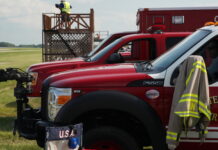The 2014-2019 ICAS Strategic Plan, approved and implemented by the ICAS Board of Directors less than a year ago, is built on four pillars: professionalism, safety, advocacy and outreach.
It is no coincidence that an increased emphasis on professionalism is the first item listed. In virtually every survey, focus group discussion and informal conversation that the Board and staff have had during the last two years, members have said that an increase in professionalism will attract more paying customers, increase profitability, improve the spectator experience, raise interest among sponsors, and improve safety.
The ICAS-administered Aerobatic Competency Evaluation (ACE) program is a good example of how ICAS can work within the industry to set standards that increase professionalism. Before ICAS assumed responsibilities for the ACE program from the FAA in 1991, our industry was suffering through an epidemic of fatal accidents. During 1988, 1989 and 1990, we averaged more than12 fatalities per year. In the subsequent 25 years, that average has dropped to 3.2 fatal accidents per year. And, since the winter of 2008, when ICAS embarked on its initiative to change the culture of air show safety, that figure has decreased to 1.6 fatalities per year.
Over the last quarter century, the ACE Committee, Safety Committee and Board of Directors have gradually asked more of the pilots who fly aerobatics at air shows in the U.S. and Canada. The most obvious impact of the ACE program has been a dramatic reduction in fatal accidents. But the secondary impact is that professionalism among air show performers has increased.
Currently, any individual with even a cursory familiarity with air shows can call himself an air boss. For years, there has been broad consensus that the industry or regulators should develop minimum experience and training requirements before an individual is permitted to act as an air boss at a public air show. There are obvious safety considerations, but the lack of clear experience and training requirements also demonstrates a lack of professionalism within the air show community.
During the last several months, ICAS has been working to apply some of the lessons learned from the ACE program to the challenges of identifying knowledgeable, competent air bosses. A small group of members has been sorting through issues related to certification, including experience requirements, different levels of air show complexity, evaluation procedures, renewal, and other considerations. Now in its seventh draft, the Air Boss Recommendation Program (ABRP) will go out soon to the entire ICAS membership for review and comment.
Once again, the most immediate benefit will be increased safety. But an important secondary benefit will be an increase in professionalism. In much the same way that a Statement of Aerobatic Competency card indicates a certain level of aerobatic skill and professionalism as a performer, ICAS members and others will know that an individual who has been certified through the ABRP has met the minimum requirements to be identified as a recommended air show air boss.
Within the last few weeks, ICAS has been working on an initiative that will act as the third leg on our “air show professionalism” stool. Before the beginning of the 2016 air show season, we will develop and implement a Certified Air Show Professional (CASP) program. Individuals wishing to use the CASP designation after their name will be required to document a certain amount of air show experience and pass a multiple-choice test that assesses the applicant’s knowledge in virtually every area of air show organization and management: budget/finance, air/ground operations, concessions, sponsorship, marketing, hospitality, logistics, volunteer management and parking/traffic.
Based on similar programs offered in other professions, the new CASP program will set the bar for air show professionalism. It will provide those inside and outside the air show community with a quick and reliable tool to assess the experience and knowledge of individuals with whom they might be working. And it will provide constituencies within the air show community – regulators, military, sponsors, etc. – with a higher level of comfort that they are dealing with an experienced and knowledgeable air show professional.
During the next several weeks, ICAS will gather a group of event organizers to determine the requirements of this new program and begin the process of developing the multiple-choice test. And, just as we have done with the ACE program and are doing with the new air boss recommendation effort, prior to its finalization, we will share the details with the entire membership to solicit opinions and perspectives that will help make it more effective.
Our goal is three different initiatives that assess the knowledge, skills, experience and expertise of air show performers, air bosses and event organizers. We expect to have all of them up, running and available for you to participate in by this time next year. Together, they will establish a common understanding of what it means to be a professional in these three different areas of the air show business. And, by setting that mark, we expect to take a big step forward in increasing professionalism in all areas of the air show industry. It won’t be the final step, but it will demonstrate our commitment as an industry to continuously improve.








